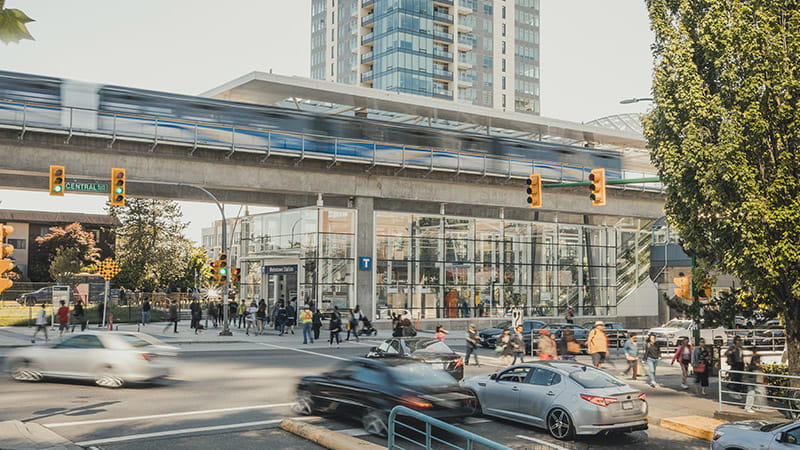Project Partnership Agreements

Project Partnership Agreements encompass a variety of agreements between TransLink and partner agencies where endorsement is needed from regional policymakers before a major project can be included in an approved and funded 10-Year Investment Plan. The requirement for these types of agreements are specified in Transport 2050: 10-Year Priorities.
To date, these agreements have been with municipal governments; however, these agreements could also be with Indigenous Nations, large institutions, and potentially other agencies, depending on the context.
These agreements are typically developed in the context of a new major transportation project and concern local partner contributions to the project itself as well as supportive policies to help ensure the project’s success. The business case for these investments depends upon host communities and TransLink putting into place the conditions for success and TransLink is committed to ensuring formal partnerships are in place.
Two types of Project Partnership Agreements are Supportive Policies Agreements and Municipal/Local Partner Contributions Agreements.
Early in the project development process, a Memorandum of Understanding (MOU) is typically signed. The Supportive Policies Agreements and Municipal/Local Partner Contributions Agreements are typically signed later in the process after the project scope has been clarified but before the project is approved by the Mayors’ Council and TransLink’s Board of Directors in a 10-Year Investment Plan.
There may be additional agreements required as part of the procurement, construction, implementation, and operation phases but these are not covered here.
Supportive Policies Agreements
One type of Project Partnership Agreement is a Supportive Policies Agreement (SPA), which is developed with local governments and/or other partner agencies where a new major transportation project is proposed.
SPAs include commitments for land use and transportation policy actions by the local partner and by TransLink, for actions outside the direct scope of the transportation project but that significantly influence the outcome of project objectives. They are framed by the key principles for advancing transit-oriented communities described in TransLink’s Transit-Oriented Communities Design Guidelines.
These high-level principles provide the structure for the SPA documents and ensure that commitments speak to:
- Planning for population and employment density to support a major transportation project;
- Providing diverse land uses and housing, with a focus on affordable housing;
- Locating high-demand destinations near transit;
- Ensuring street networks support walking, cycling and transit;
- Designing a safe, vibrant and accessible public realm for people of all ages and abilities; and
- Using measures such as reduced parking to promote sustainable transportation.
SPAs are continuously monitored to ensure commitments and outcomes are progressing as expected. Reports are regularly provided to the Mayors’ Council, TransLink’s Board of Directors, the partner agency’s decision-making body, and the Province for information sharing and to provide transparency.
Municipal/Local Partner Contributions Agreements
A Municipal/Local Partner Contributions Agreement details local contributions directly to a major transit project. A Policy Framework for Major Transit Project Contributions from Municipal and Local Partners was approved by the Mayors’ Council in 2021. The policy recognizes that delivering major transit projects requires partnership at the local level and that early cooperation and planning from municipalities and other local partners can minimize costs and risks.
The framework serves as guidance for TransLink and regional decision-makers and sets out expectations for local partners about when, how, and what to contribute to major transit projects. TransLink, along with senior government partners, will continue to be the primary funders of regionally identified scope elements of major transit projects (called the "regional base scope" for this purpose). This is the scope of the project that best advances the project’s regional objectives. If an agreed to project element goes beyond the regional base scope, the local partner must contribute some or all the incremental costs.
The types of contributions expected of local partners vary by the type and nature of the project and may include:
- Direct monetary transfer to TransLink or the project where a local partner requests additional or enhanced scope elements that go beyond the regionally identified scope of the project;
- Contribution of land and/or property rights; and/or
- In-kind contributions such as staff time, planning and project assistance.

